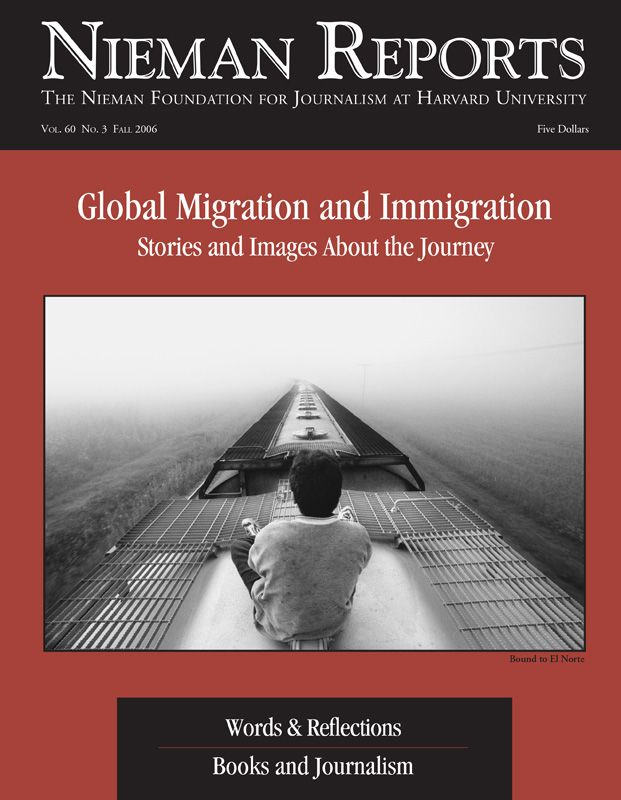RELATED ARTICLES
Also by Sonia Nazario
- "Ethical Dilemmas in Telling Enrique's Story"
- "Preparing for the Journey"
- "On the Narrative Approach"I carried very little money on me, and I never brought the cell phone out in the presence of anyone. Even when I was on top of the train I would refrain from calling my husband until I could go to a part of the train that was empty. I would never eat in front of kids. I would never drink water in front of kids. When we were on a train for a 16-hour stretch I did not eat, I did not drink water. In fact, I did not go to the bathroom because girls can't do that on the top of the train. By my influence with Mexican authorities, it showed that I might be able to help people along the way. I just tried to minimize that perception of my ability to intervene. If you're consistent and immigrants see you're not giving anything to anyone and you explain to them what the ration-ale is about not giving money, if you take the time to do that, I think that really helps. At a certain point, one person would come up and start asking for money and another would say, "Don't even bother." The word kind of got around.
Also by Sonia Nazario
- "Ethical Dilemmas in Telling Enrique's Story"
- "Preparing for the Journey"
- "On the Narrative Approach"I carried very little money on me, and I never brought the cell phone out in the presence of anyone. Even when I was on top of the train I would refrain from calling my husband until I could go to a part of the train that was empty. I would never eat in front of kids. I would never drink water in front of kids. When we were on a train for a 16-hour stretch I did not eat, I did not drink water. In fact, I did not go to the bathroom because girls can't do that on the top of the train. By my influence with Mexican authorities, it showed that I might be able to help people along the way. I just tried to minimize that perception of my ability to intervene. If you're consistent and immigrants see you're not giving anything to anyone and you explain to them what the ration-ale is about not giving money, if you take the time to do that, I think that really helps. At a certain point, one person would come up and start asking for money and another would say, "Don't even bother." The word kind of got around.



